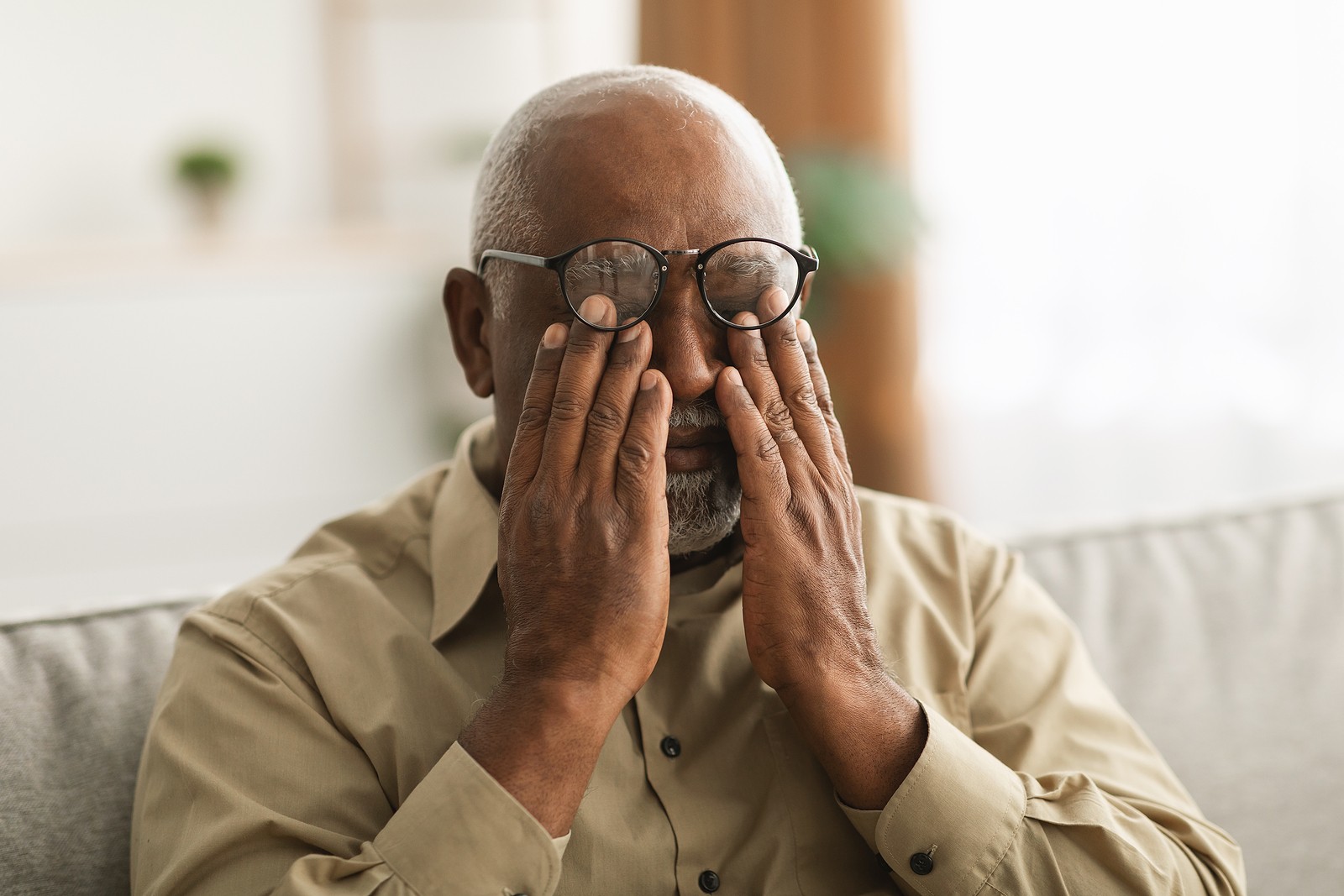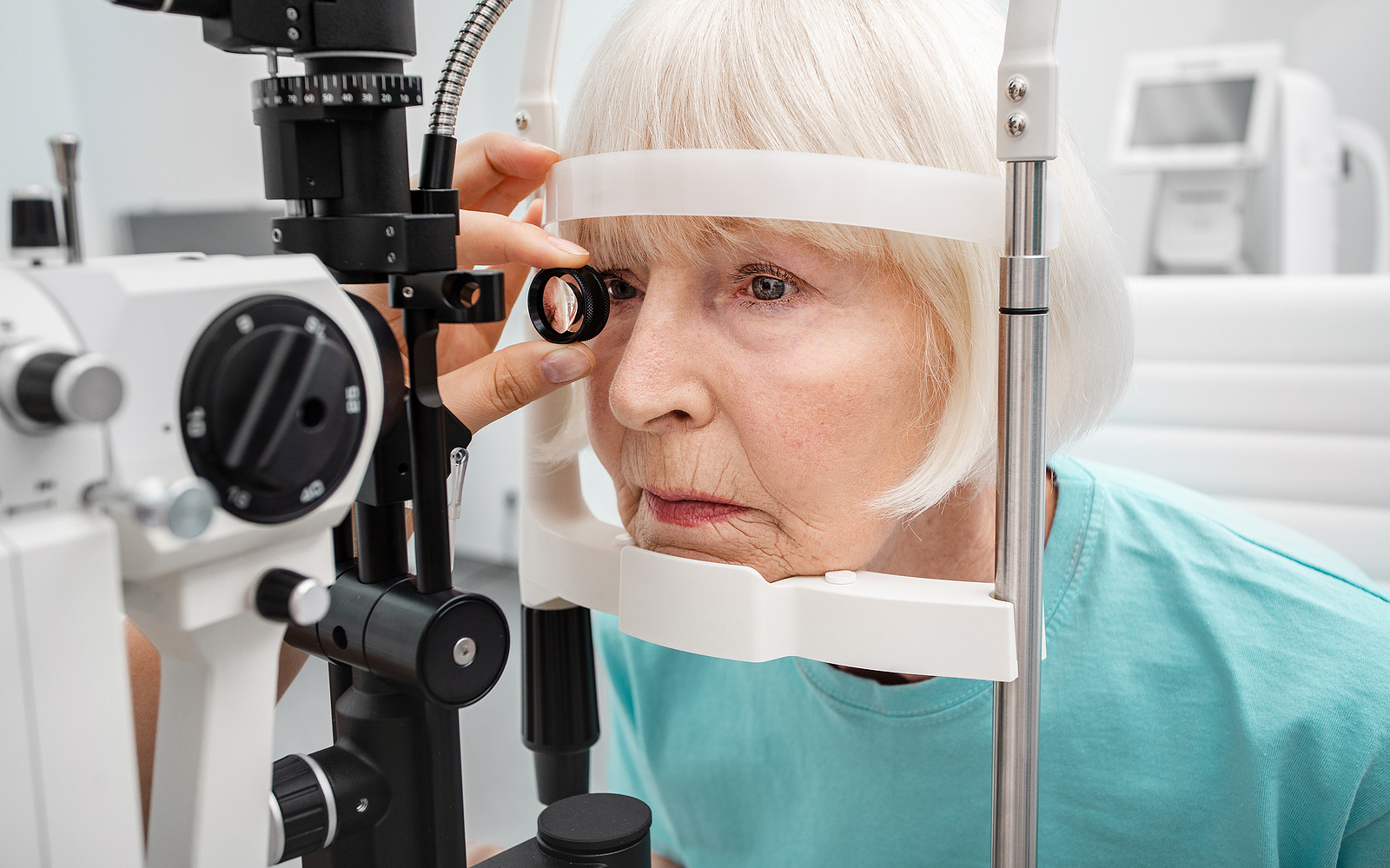Understanding Dry Eye Syndrome and Aging

Everyone experiences dry eyes occasionally from fatigue or arid weather. However, if you find your eyes are chronically dry and itchy, you may have dry eye syndrome. At Swagel Wootton Eye Institute, we have eye doctors in the greater Phoenix area who can treat the symptoms of dry eyes and help you find any underlying causes.
What Is Dry Eye Syndrome?
Generally, chronic dry eye syndrome comes from diminished tear production. For one reason or another, your eyes either don’t produce enough tears or produce poor-quality tears. The good news is that our eye doctors in Mesa and Chandler can provide remedies to alleviate your discomfort.
Symptoms of Dry Eye
If you notice the following symptoms, particularly if you have them in both eyes, you may have dry eye syndrome:
- Burning, scratchy or stinging sensation
- Stringy mucus
- Redness
- Light sensitivity
- Feels like there’s something in your eye
- Driving is difficult
- Unable to wear contact lenses comfortably
- Watery eyes
- Blurry vision
When to See a Doctor
If you have prolonged symptoms or your symptoms worsen, it’s important to consult with your eye doctor right away. Although we specialize in cataract and LASIK surgery in Mesa and Chandler, Swagel Wootton Eye Institute has a long history of providing care to those with dry eye syndrome. Feel free to call us with any questions you may have prior to your appointment.
Aging Tops the List of Dry Eye Causes
Aging is a primary factor in the development of dry eye syndrome. As you grow older, tear production decreases and you may produce poor quality tears. Also, as you grow older, you may take more prescription medications, which some researchers have linked to dry eyes.
Some of the major causes of dry syndrome include the following:
- Aging
- Laser eye surgery
- Medications
- Excessive dry air
- Reduced blinking
- Prolonged screentime
- Wearing contact lenses
- Hormonal changes in women
- Allergies
How Aging Impacts DES?
Here are common conditions that lead to greater incidences of dry eyes among older adults:
- The lacrimal glands produce tears, but as you get older, the glands produce fewer tears. This dramatically impacts your ability to keep your eyes moist.
- If you are an adult over age 50, you may take medications for diabetes, hypertension, Parkinson’s disease or rheumatoid arthritis, to name a few. You can read the labels of your medication to see whether they list dry eye syndrome as a side effect.
- For women over age 50, dry eyes may appear as a symptom of menopause.
- The meibomian glands are located in the eyelids. They produce lipids and essential oils that prevent your tears from evaporating too quickly. In older adults, these glands can become blocked or degenerate, leading to dry eye syndrome.
Alleviating Dry Eyes
When you first notice symptoms of dry eye syndrome, it’s important to make time to visit our eye doctors in Mesa and Chandler for a definitive diagnosis. However, there are a few things you can do to alleviate dry eyes on your own:
- Your eye doctor may recommend artificial tears that come in gels, ointments or eye drops. Many of these can be purchased over the counter and they can alleviate mild dry eye syndromes. For more persistent symptoms, you may need a prescription-strength solution.
- Keeping your body hydrated can help you reduce your dry eye symptoms. Drink at least eight cups of water every day to help your eyes stay moist.
- Placing humidifiers around the house can produce a moist environment that benefits your respiratory system and skin and it can also help prevent your eyes from drying out.
- Limiting the amount of time you spend on computers can increase the amount of blinking you do. In turn, that can alleviate dry eye symptoms.
Even if your eyes begin to feel better, it’s a good idea to follow up with your eye doctor to check your overall eye health. Contact Swagel Wootton Eye Institute to schedule an appointment with one of our eye doctors in the greater Phoenix area. Let us help you keep your eyes moist and healthy at any age!
[DISPLAY_ULTIMATE_SOCIAL_ICONS]








